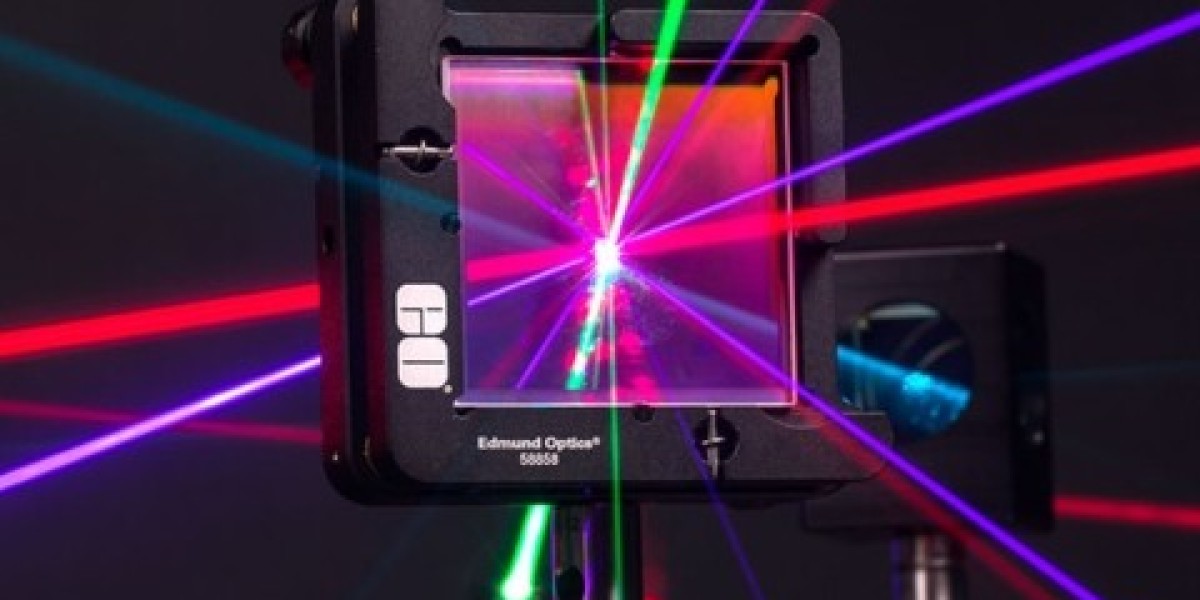What Is a Laser Mirror?
A laser mirror is a highly reflective optical component designed specifically for laser applications. Unlike ordinary mirrors, laser mirrors are engineered to reflect specific wavelengths with high efficiency and low loss, ensuring minimal beam distortion or energy absorption. They are essential in applications ranging from CO₂ laser cutters and fiber lasers to medical devices and research-grade systems.
LaserChina, a leader in optical components, offers precision-crafted laser mirrors tailored to various industrial needs, ensuring exceptional durability and performance.
Why Laser Mirrors Are Critical in Laser Systems
Laser mirrors play a central role in:
Beam delivery – guiding the laser beam across optical paths
Cavity resonance – ensuring proper oscillation in laser cavities
Precision targeting – allowing for tight focal alignment
Thermal stability – resisting deformation under high power
Whether you're in metal engraving, medical diagnostics, or semiconductor processing, the right laser mirror can significantly improve system stability and output quality.
Key Types of Laser Mirrors
| Type | Coating Material | Wavelength Range | Application |
|---|---|---|---|
| Dielectric Mirrors | Multi-layer dielectric | 190 nm – 3 μm | General laser systems |
| Metallic Mirrors | Gold, Silver, Aluminum | 700 nm – 20 μm | Broadband reflection, CO₂ lasers |
| CO₂ Laser Mirrors | ZnSe substrate + gold | 10.6 μm | Laser cutting/engraving |
| Fiber Laser Mirrors | Dielectric + SiO₂ | 1.03 μm – 1.08 μm | Fiber laser systems |
How LaserChina Mirrors Are Manufactured
LaserChina’s optical mirrors are crafted with:
Precision polishing to achieve surface flatness (λ/10 or better)
Ion-beam sputtering (IBS) for high-density coatings
Vacuum deposition for uniformity
Quality control using interferometry and laser beam tests
These production steps ensure every mirror delivers consistent reflection, high power handling, and environmental durability.
Benefits of Using LaserChina Laser Mirrors
Ultra-high reflectivity: Up to 99.9% for designated wavelengths
Low thermal expansion: Perfect for high-power applications
Scratch-resistant coatings: Prolonged lifespan
Custom shapes and sizes: Round, elliptical, rectangular, and more
Material versatility: From fused silica to ZnSe and silicon
These benefits translate into fewer system failures, longer optical life cycles, and sharper beam focus.
Choosing the Right Laser Mirror: Factors to Consider
When selecting a laser mirror, always consider:
Wavelength compatibility
Power density tolerance (W/cm²)
Angle of incidence (AOI)
Mirror substrate material
Coating durability and environmental resistance
LaserChina provides custom consultations to ensure the perfect match for your system’s demands.
Applications of Laser Mirrors in Different Industries
Industrial Manufacturing: Used in CNC laser cutting and welding machines
Medical & Aesthetic Devices: Found in dermatology lasers, dental lasers, and ophthalmic tools
Defense & Aerospace: Critical in rangefinders, targeting systems, and laser communication
Scientific Research: Enabling lab-grade optical setups for spectroscopy and quantum mechanics
Real-World Insight: Performance Under Stress
LaserChina mirrors undergo stress testing at high energy levels (up to 1 kW/cm²) to evaluate coating adhesion, reflectivity under heat, and deformation thresholds. Results show less than 0.1% reflectivity degradation after 1,000-hour continuous operation, making them ideal for industrial work environments.
FAQs: Laser Mirrors at a Glance
Q1: What’s the difference between dielectric and metallic mirrors?
A1: Dielectric mirrors offer higher reflectivity for specific wavelengths but narrower bandwidths. Metallic mirrors provide broad reflection but slightly lower reflectivity.
Q2: Can I use a laser mirror for multiple laser types?
A2: Only if the mirror is designed with multi-band coatings or broadband reflectivity. Otherwise, wavelength mismatch can reduce efficiency.
Q3: How often should laser mirrors be replaced?
A3: With proper cleaning and handling, LaserChina mirrors can last several years, especially under moderate power use.
Q4: How do I clean laser mirrors safely?
A4: Use optical-grade wipes and isopropyl alcohol. Avoid abrasive contact and never touch the surface directly.
Q5: Do mirror coatings affect beam polarization?
A5: Yes, certain coatings and AOIs can influence polarization. Always specify if polarization control is needed.
Final Thought:
Investing in high-quality laser mirror from trusted providers like LaserChina ensures system longevity, enhanced precision, and consistent performance across diverse applications. Whether your project is scientific or industrial, optimized reflection is not just a feature—it's a necessity.








